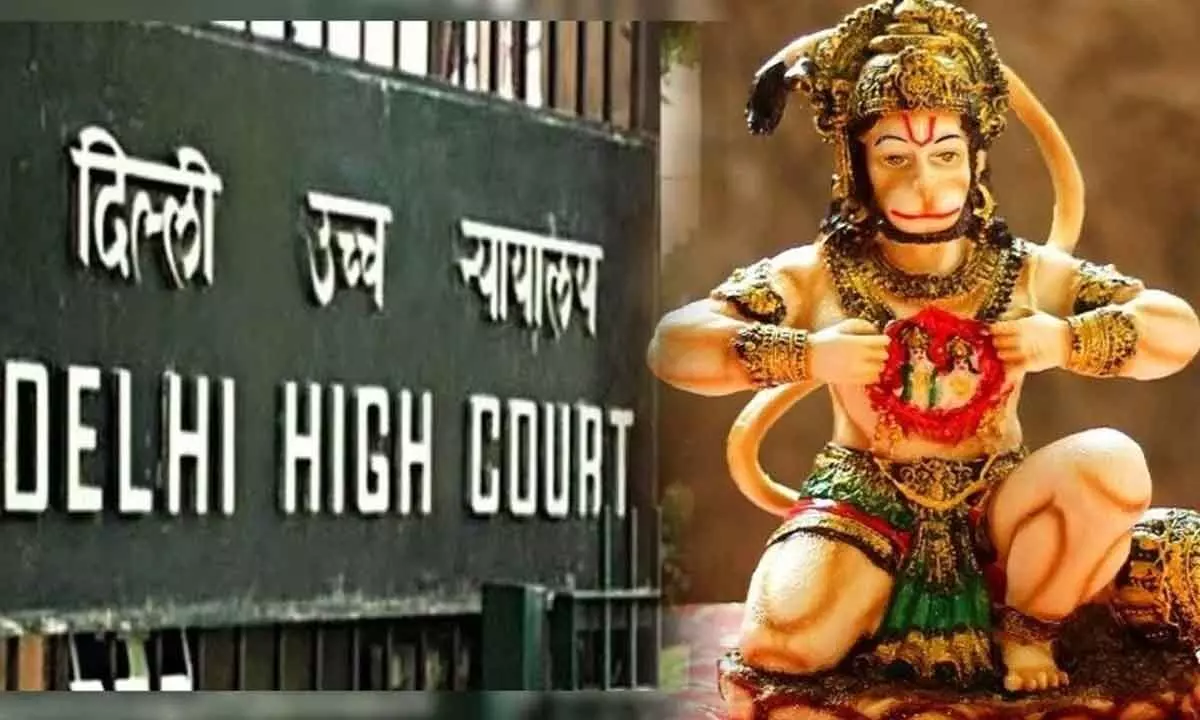Man makes Lord Hanuman co-litigant, fined Rs 1 lakh

New Delhi: The Delhi High Court has imposed costs of Rs 1 lakh on a man who made Lord Hanuman his co-litigant in a plea concerning the possession of a private land having a temple of the deity.
The plea, which was an appeal against a lower court order rejecting their "objection petition" in relation to the transfer of the land to another party, claimed that since there was a public temple on the property, the plot belonged to Lord Hanuman and the appellant man was before the court as his next friend and a worshipper.
Calling it a case of ‘rank collusion with an intent to grab’ the property, Justice C Hari Shankar dismissed the appeal and ruled that appellant man acted in “contumacious collusion” with the current possessors of the land so as to stop another party from regaining possession following a lawsuit between them and a settlement.“The defendants (current possessors) grabbed the plaintiff’s (the other party) land. The plaintiff sued to recover possession. The defendants pleaded adverse possession. Ultimately, the defendants asked the plaintiff to pay Rs 11 lakh to vacate. The suit was decreed on those terms.
“Thereafter, the plaintiff actually paid the amount of Rs 6 lakh but the defendants still did not vacate. “The plaintiff filed for execution. In the execution, the present appellant, who is a third party, filed an objection saying there is a public temple on the property dedicated to Lord Hanuman and that, therefore, the land belongs to Lord Hanuman and that he was entitled to protect Lord Hanuman’s interest as his next friend, as a deity is a minor in law,” the court, in an order passed on Monday, stated.
“I never thought that God would, one day, be a litigant before me. This appears, however, thankfully, to be a case of divinity by proxy,” the court observed. The court said there was no concept of the right to worship at a private temple vesting in the public unless the owner of the temple makes such a right available or with the passage of time the private temple metamorphoses into a public temple.
It added that mere worship by the public at a private temple does not convert it into a public temple as it would lead to disastrous consequences, which no civilised system of law could countenance. “As has happened in the present case, a person could grab the property of another, squat thereon, construct a temple on the property, allow the public to occasionally worship there, and obstruct, permanently, the restoration of the property to its rightful owner. Allowing such a pernicious practice would be driving the last nail in the coffin of justice,” it said.
“The fact that the public worships at a private temple, even with free access, does not ipso facto indicate that the temple is a public temple.
Neither does the land on which a private temple is constructed vest in the deity, merely because the public are allowed to worship there.
What is of essence is the purpose for which the temple was constructed and dedicated to the deity consecrated in it, and the purpose for which the temple has been thrown open to the public,” the court said.















